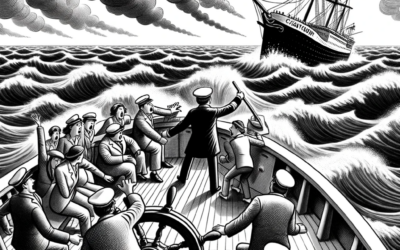Emotions vs. Intellect in the Coaching ExperienceBy: Peter ColemanAs executive coaches, we are always looking for the right words to make our clients understand their situation, and to help them find their way out of the dilemma or to accomplish their goals. Just as the Japanese are reputed to nod “yes” when all they mean to convey is that “I understand what you are saying,” many times our clients will acknowledge the wisdom of our interpretation without really committing to a change of direction or action. The problem is one of emotion trumping intellect, of “heart vs. head.” “Business,” as many of us understand it, is based on a cold rationale: profit is the only real purpose, so all elements must be intellectually aligned to produce said profit, and that’s that. But of course it’s never that simple. Behind each element is a number of human factors that can influence, interfere, or accelerate the opportunity for accomplishment, and a good coach must discover and address them if the process is to move ahead. So, how do we find the “heart” in each process? As always, “just ask!” If, for instance, the coach is getting all kinds of intellectual acceptance to his or her coaching ideas, yet the business remains stalled in an old approach, there is always something more that hasn’t been identified. As leaders and coaches, we must keep asking questions, keep probing, until we find the real reasons, which may be surprising. The heart is always stronger than the “head” because emotions are what ground people in the rightness of their decisions. You may have heard the old joke, “Don’t confuse me with facts. I’ve already made up my mind.” That mind has been made up based on emotional commitments, not intellectual ones. The only way we can achieve change is to find another way into the emotional argument, to supplant the current “heart” commitment with a stronger one. All the intellectual arguments in the world are useless against a strongly held emotional one. In conclusion, the good executive coach listens to the client’s rationale for the status quo, but continues to probe deeper into the real motivations. Until the fundamental reasons (usually emotional ones) are addressed, there is little possibility of fundamental change. Find the “heart” of the matter, and you can then “head” in the right direction! |
Elevating Leadership: The Journey from Dojo to Boardroom
Have you ever considered that the path to elevating your leadership excellence might start… in a dojo? Yes, a place more commonly associated with martial arts than with boardroom strategies. Yet, here we are, drawing parallels between somatic embodiment, Jo Kata, and...


